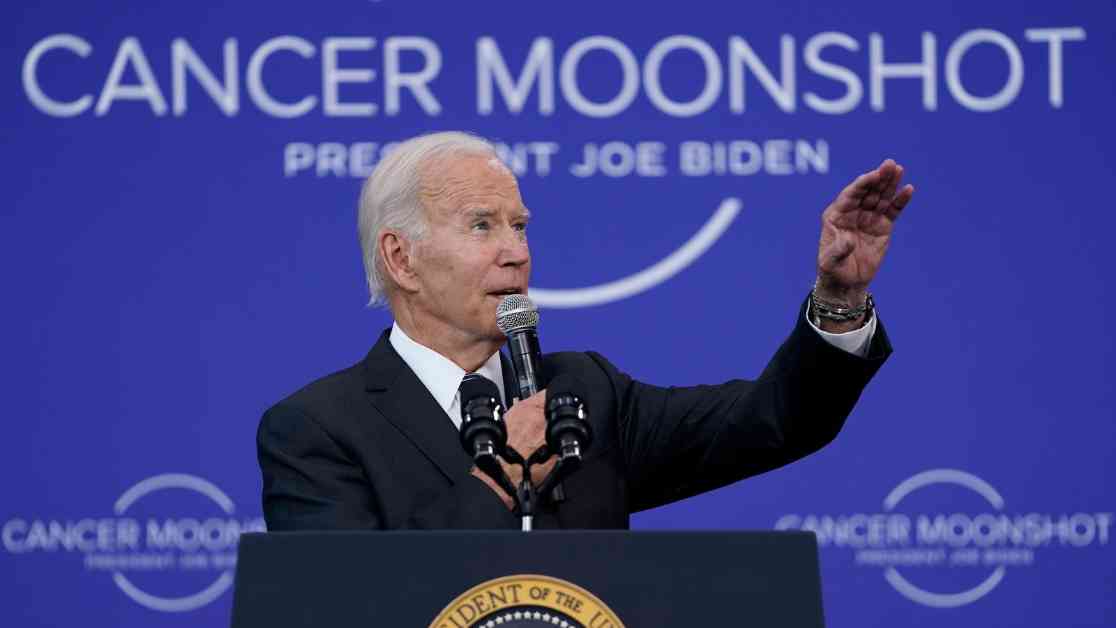President Joe Biden is focusing on his administration’s “moonshot” initiative to reduce cancer deaths as he nears the end of his term. He plans to cut U.S. cancer fatalities by 50% over the next 25 years and improve the lives of caregivers and cancer patients. Experts believe this goal is achievable with the right investments.
Cancer is a major cause of death in the U.S., second only to heart disease. The American Cancer Society estimates that 2 million new cancer cases will be diagnosed this year, with over 600,000 deaths. Despite these statistics, there is hope for progress. Karen Knudsen, CEO of the American Cancer Society, believes that with current innovations, cancer mortality rates could be reduced by an additional 20 to 30%.
For President Biden, the fight against cancer is personal. In a recent address, he reaffirmed his commitment to the cancer moonshot initiative, vowing to end cancer as we know it. Both President Biden and First Lady Jill Biden have had skin lesions removed due to cancer, and tragically, their son Beau passed away from brain cancer in 2015.
Advocates have praised Biden for his dedication to fighting cancer and bringing stakeholders together. The administration’s efforts have the potential to reduce cancer death rates by at least half, preventing millions of deaths by 2047. By improving access to treatments and promoting cancer screenings, progress is being made in the fight against this disease.
Moving forward, it is crucial to ensure sustained funding for cancer research and initiatives. By supporting the National Institutes of Health and the National Cancer Institute, programs created through the cancer moonshot can continue to make a difference. Initiatives like making cancer care more accessible and banning menthol-flavored cigarettes can save lives and improve outcomes for patients.
Cancer is a complex disease with many different forms and treatments. Targeted therapies and biomarker-driven treatments are changing the landscape of cancer care. Dr. Crystal Denlinger, CEO of the National Comprehensive Cancer Network, emphasizes the importance of maintaining the focus on ending cancer in the future.
As President Biden works towards his goal of reducing cancer deaths, his commitment to this cause remains unwavering. By prioritizing funding, accessibility, and innovation, progress can continue to be made in the fight against cancer.


















